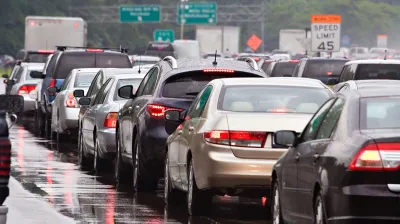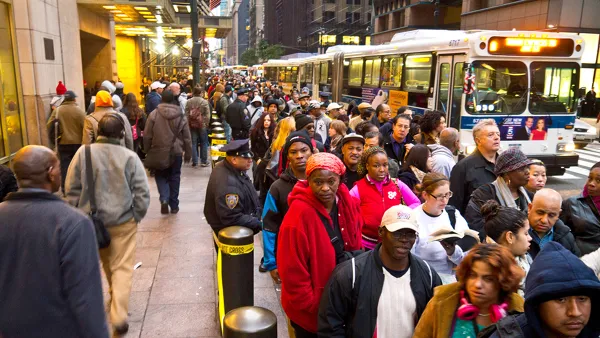Research from Brookings puts Cleveland in last place for improving access to jobs from 2000 through 2012. And jobs sprawl is up throughout the rest of the country as well.

Despite all we hear about a return to density, research from Brookings shows rising distances between people and their jobs. And Cleveland, Ohio seems to be having the most difficulty containing 'jobs sprawl,' the suburbanization of employment. From 2000 to 2012, Northeast Ohio suffered an average of -26.5% job access, defined as percentage of jobs that can be reached in a typical commute.
From the article: "The worst was felt by the city of Cleveland (-26%), but the wave has hit the suburbs in Cuyahoga County and the western half of Lorain County as well (-22.9%). Job sprawl was particularly bad for areas below poverty level (-35%) and in 'majority-minority' areas of the region (-28%). Jobs leaving the metro region totaled 18% in that period."
So far, attempts to ameliorate this problem have been abstract, as in regional plans. Marc Lefkowitz writes, "Ideally, as Ohio promises to better align its transportation funding with performance metrics, it will look at jobs/transit access as one of the areas of improvement."
FULL STORY: Cleveland: Dead last in controlling jobs sprawl

Analysis: Cybertruck Fatality Rate Far Exceeds That of Ford Pinto
The Tesla Cybertruck was recalled seven times last year.

National Parks Layoffs Will Cause Communities to Lose Billions
Thousands of essential park workers were laid off this week, just before the busy spring break season.

Retro-silient?: America’s First “Eco-burb,” The Woodlands Turns 50
A master-planned community north of Houston offers lessons on green infrastructure and resilient design, but falls short of its founder’s lofty affordability and walkability goals.

Test News Post 1
This is a summary

Analysis: Cybertruck Fatality Rate Far Exceeds That of Ford Pinto
The Tesla Cybertruck was recalled seven times last year.

Test News Headline 46
Test for the image on the front page.
Urban Design for Planners 1: Software Tools
This six-course series explores essential urban design concepts using open source software and equips planners with the tools they need to participate fully in the urban design process.
Planning for Universal Design
Learn the tools for implementing Universal Design in planning regulations.
EMC Planning Group, Inc.
Planetizen
Planetizen
Mpact (formerly Rail~Volution)
Great Falls Development Authority, Inc.
HUDs Office of Policy Development and Research
NYU Wagner Graduate School of Public Service



























